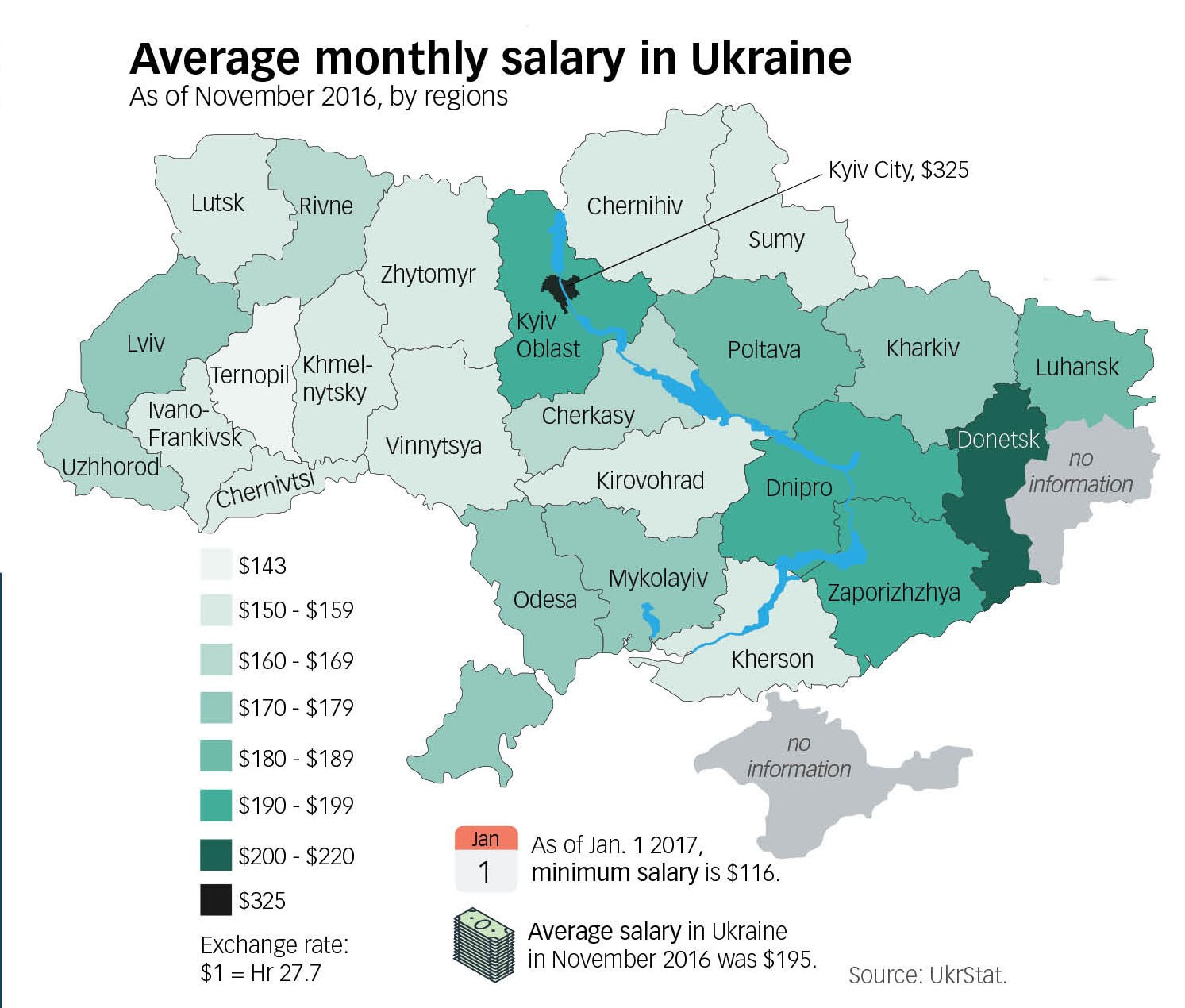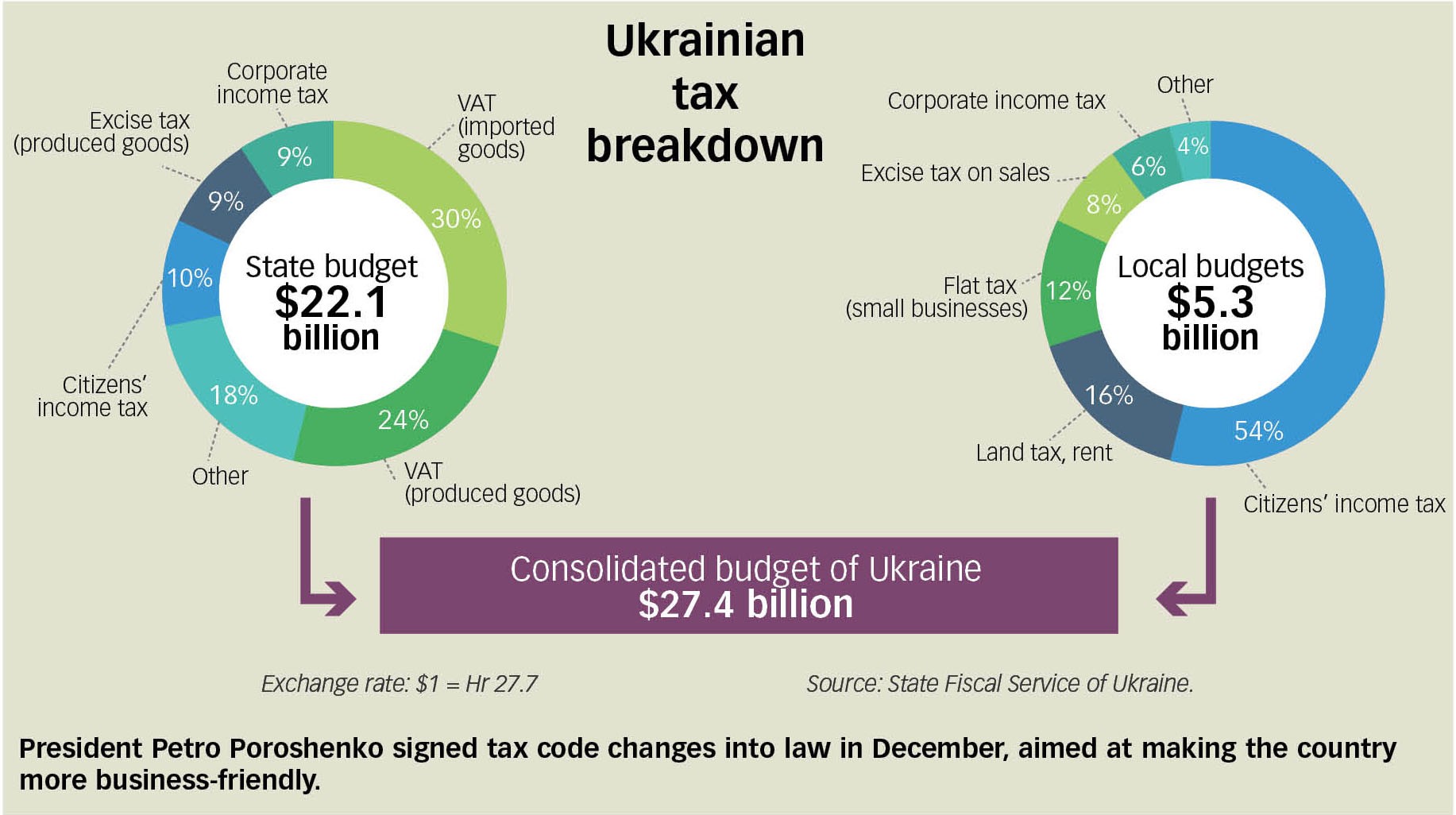Roman Nasirov, head of the State Fiscal Service, said he’s going to make 2017 the year of the crackdown on Ukraine’s shadow economy – particularly the widespread practice of paying salaries without paying taxes.
“One of our priorities for 2017 is fight against shadow economy including salaries ‘in envelopes,’” Nasirov said at a Jan. 25 press conference.
Ukrainian workers are required to pay an 18 percent individual income tax and a 1.5-percent military tax on their salaries. In addition, every company pays a 22 percent social security, or payroll, tax on each official employee’s salary.
Thus, both employer and employee find it mutually beneficial to declare less than the employee really earns, depriving a state starved of revenue.

President Petro Poroshenko recently promised to raise the minimum wage in a move to fight poverty while shoring up political support.
Carrots and sticks
To encourage the de-shadowization of the workforce, individual income taxes were lowered to a flat rate of 18 percent while the social security tax was cut to 22 percent from 40 percent. The government, meanwhile, increased the minimum salary to Hr 3,200 ($116).
At the same time, the government required tougher financial penalties – Hr 320,000 or $11,000) – for blocking state labor inspectors from auditing unreported employment, for paying salary off-the-books and for tax evasion.
This was a controversial move, since Ukrainian tax inspection raids often happen unannounced and remain a troubling roadblock to investment, according to the Business Ombudsman Council.
“Penalties and inspections won’t encourage small and medium businesses, which suffer from high taxes the most, to go transparent in their official statements,” said Boris Melnichuk, director of the Kyiv-based consulting firm International Institute of Audit. “Instead of giving tax relief, the government is increasing the burden and threatening (tougher) punishment for disobedience, which forces companies to go into the shadows.”

President Petro Poroshenko signed tax code changes into law in December, aimed at making the country more business-friendly.
People’s choice
While the government must take its share of blame, so must employers and employees, Melnichuk said, for being complicit in tax evasion and keeping the shadow economy thriving, fueled by cash payments for salaries.
Ukraine has a cheap yet highly skilled workforce. Official and market statistics show that the average monthly salary in Kyiv is Hr 9,000 ($325), but only Hr 4,000-5,000 ($150-200) in regions.
Yekaterina Maschenko, head of the analytical department of HeadHunter, said larger companies tend to offer official contracts.
But another important reason why many Ukrainians prefer to avoid taxes is they simply don’t trust the state.
“The only way to motivate people to go transparent about their earnings is to show that their taxes serve a purpose and won’t disappear into the pockets of corrupt officials,” said Melnichuk.
